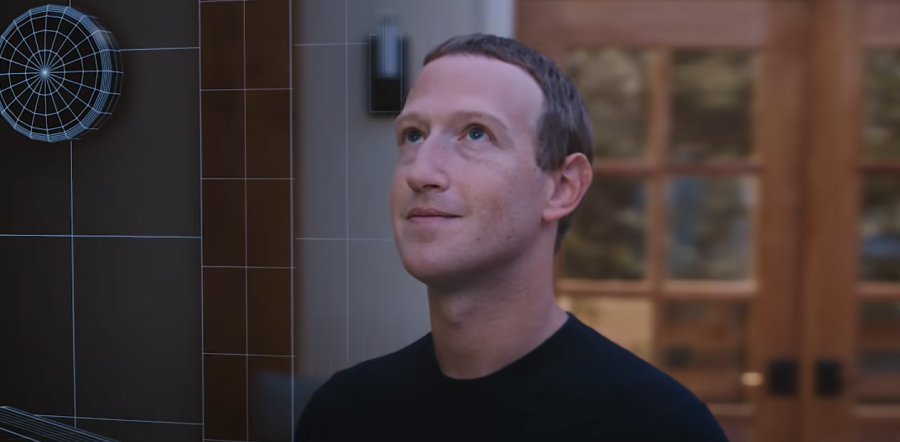The Metaverse is a Waste of Time
On October 28th, 2021, the Meta YouTube channel introduced their biggest project yet. The Metaverse, a virtual world where you’ll be able to talk, learn, play, and coexist with other people, as if it was real life.
Mark Zuckerberg’s Metaverse is redundant, and makes empty promises about progress and evolution. Meta thinks a virtual world is restricted to what the real world is, and doesn’t try to make something new that hasn’t been done before.
Zuckerberg begins his presentation by having the audience believe that this is something new and innovative, but that couldn’t be further from the truth. Whether it’s entertainment, art, or business, all of the things the Metaverse does can be found somewhere else, and in a better way.
You can play poker in Zuckerberg’s Metaverse, that’s not really surprising anyone. Anyone can look up any free online poker game and have a few rounds of their own. Just because the Metaverse presents it with fancy 3D models, doesn’t mean it’s an impressive feat, it just means they didn’t have any better ideas.
As it is marketed to us, the Metaverse will be able to do many things, with almost limitless features. However, as with most products that try to appeal to everyone, the Metaverse is turning out to be a jack of all trades, master of none. With education being one of the main topics it wants to innovate on, one would think that its ideas to improve it would be more groundbreaking, and yet, we’re left with something that sounds like a poorly executed Wikipedia knockoff.
The scene opens with two women sitting on a bench. The first woman states she needs to study for a school project about Saturn, then the two women put on their VR goggles. They proceed to read short paragraph after short paragraph with information pertaining to the planet.
A recurring theme throughout Meta’s presentation is how they’re creating something that is novel, unique, and new. However, its main feature, a social space for people to hang out and have fun, has already been done, and in a better way. Trying to innovate in a market, without bringing anything new to that market makes your attempts to sell the product irrelevant. Why would you want a more expensive, less productive product, when a cheaper, better alternative already exists?
VRChat is an online virtual world platform created by Graham Gaylor and Jesse Joudrey and operated by VRChat, Inc. that allows users to interact with others with user-created 3D avatars and worlds. An interactive experience where users can be a part of a wide array of activities with others users, or themselves.
For entertainment, we are shown a concert, where there are two women involved. One is at home, and the other one is physically present at the concert. The first woman looks at her phone, taps on an Instagram invite, and suddenly appears in the event with her friend as a hologram. Much to Zuckerberg’s dismay, this is not actually possible. Holographic images that can appear in any physical location don’t exist and probably won’t exist for a very, very long time.
Something they brush off in the presentation is just how much technology is involved in the process of recording a woman and having her show up in the concert among real people. For her to move around in real-time, while in the concert, she would need to be constantly recorded, in a controlled environment, most definitely wearing a motion capture suit. Currently, this is impossible.
Another emphasis in their marketing is commerce, and how creators can sell their stuff online. What they seemingly do not realize though, is that this isn’t something new. Integrated or not, a digital marketplace always has, and always is going to be present within a social space, whether it’s built into it, like MadeMay, or it’s a side feature, like in Twitter.
Through the usage of outside payment methods, like PayPal, digital commerce was normalized and integrated into the biggest social media sites. A marketplace should be expected.
Recently, Zuckerberg held a conference meeting where he showed off what the Metaverse is starting to look like. In one moment, we see a group of people in a conference room staring at a screen. What’s the difference between looking at a PowerPoint presentation at work, and looking at a PowerPoint presentation in the Metaverse? The difference is the latter is the more expensive option.
If the Metaverse is supposed to revolutionize many aspects of our reality, why does Meta settle for mediocrity?
Even though Meta has the biggest budget, the largest amount of people working on this product, they are still left in the dust by other companies and games. One of these being Roblox. Originally a game for children, now closer to a Metaverse than anything Meta has made. Now people can attend concerts and make money while still having fun.
It’s companies like Roblox that understand what the Metaverse should be, or at least have a clearer understanding of it than Meta. They understand it’s a place of freedom and creativity, but it’s also a place of business and work.
In conclusion, the Metaverse is something every major company will want to try their hand at, but whether or not they’ll do a good job at it is still uncertain. Meta lacks focus, and if they want to win the audience, they are going to have to get their ideas together, and create something that is not already offered in the marketplace.




